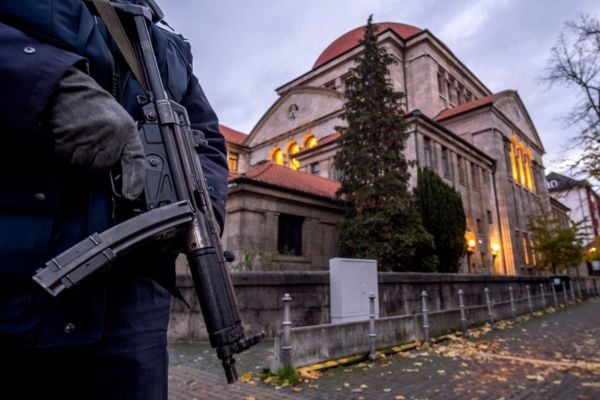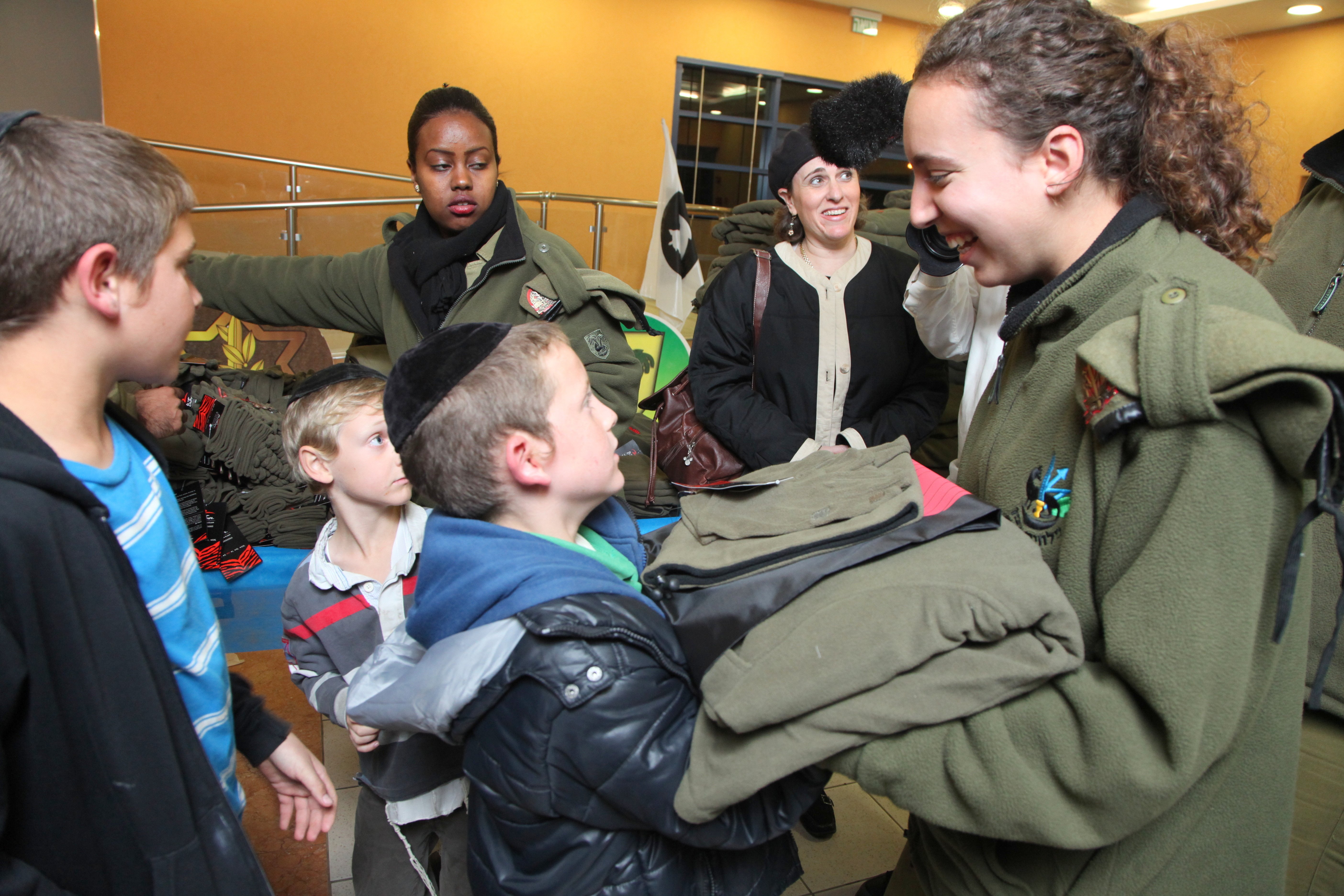The terrorist organization retains an ample presence there but has thus far restricted its activities to propaganda and fundraising.
By Ben Cohen, JNS
Unless you follow the news from Europe closely, it’s unlikely you’ll be aware that last week, seven alleged Hamas suspects believed to be planning attacks on Jewish targets were arrested during police raids in Germany, Denmark, and the Netherlands.
It’s not entirely clear whether these police operations were coordinated across borders, although the details that have emerged since the arrests suggest that they were.
According to a statement from the German Federal Prosecutor’s office, three of the men were arrested in Berlin while traveling back from a weapons dump allegedly set up by one of them, whose name was given by police as Abdelhamid Al A. and who reportedly arrived in Germany earlier this year on the orders of Hamas leaders based in Lebanon.
Both this suspect and the other two, named as Mohamed B. and Nazih R., were alleged to have visited the weapons dump on several occasions since the Oct. 7 pogrom executed by Hamas terrorists in the south of Israel.
A fourth man allegedly connected to the trio in Germany was arrested in Rotterdam by Dutch police and handed over to the Berlin authorities.
All of them are said to be closely linked to the Izz ad-Din al-Qassam Brigades of Hamas, which played a key role in planning and executing the pogrom in which 1,200 people were murdered and more than 200 seized as hostages.
Separately, Danish police announced on the same day that three people had been arrested in Copenhagen on terrorism charges.
In this case, however, the police said only that the detainees had intended to carry out an “act of terror” and didn’t specify whether there was a connection to Hamas.
What they did do was advise the local Chabad rabbi to cancel a Chanukah candle-lighting ceremony in the center of the Danish capital on the grounds that the event was a security risk, indicating that the authorities regard terrorist attacks on Jewish communities as a clear and present danger, and that other terror suspects yet to be detained remain at large.
If it turns out that these detainees were dispatched for the purpose of carrying out terror attacks on European soil, then that would mark a major strategic departure for Hamas.
The organization retains an ample presence in Europe but has restricted its activities to propaganda and fundraising—activities that European governments have attempted to clamp down before and after the Oct. 7 atrocities with varying degrees of commitment and success.
But unlike its cousins ISIS and Al-Qaeda, Hamas has so far not engaged in violence against European targets, presumably out of concern that doing so would alienate public opinion and run afoul of law enforcement.
One can see that Hamas might be tempted to attack a specifically Jewish target rather than a general one, calculating that this would sit better with public opinion.
During the last decade in France, Islamists carried out terror operations against both Jewish targets, including the Hyper Cacher kosher supermarket in Paris, and general ones, such as the Bataclan nightclub in the French capital; public outrage and protest was typically higher following attacks on the general targets rather than the Jewish ones.
Going further back, Hamas may believe, not unreasonably, that the response of many European non-Jews to a terror attack on a synagogue or Jewish school would echo the reaction of former French Prime Minister Raymond Barre to the October 1980 Palestinian terrorist attack on the Rue Copernic synagogue in Paris.
Noting that four people had been killed outside the synagogue—only one of whom happened to be Jewish—Barre stated that “this odious attack was aimed at hitting Jews going to the synagogue but hit innocent French people who were crossing Rue Copernic.”
In other words, while violence and terror should be abhorred, it’s easier to rationalize such acts when Jews are killed rather than non-Jews, because Jews are less “innocent.”
Most European politicians today would run a mile from a Barre-like reaction. Their rhetoric, especially in Germany and France, though less so in Spain, has focused on reassuring Jewish communities that they are safe and insisting to the general population that the Jewish presence among them is both welcome and non-negotiable.
Yet law enforcement has lagged behind these good intentions, while public opinion remains ambiguous, tolerating angry mass protests in capitals and major cities every week in support of Hamas.
At the same time, media coverage of Israel’s defensive war in the Gaza Strip, which emphasizes the plight of Palestinian civilians and lays the lion’s share of blame for their ordeal at Israel’s door, bolsters public perceptions of the Jewish state as a rogue state.
In the minds of more than a few, Israeli culpability makes attacks on Jews outside Israel far more understandable, if not wholly justifiable.
There is a further dimension to the problem. Episodes like last week’s arrests encourage the view that terrorism is something imported from the outside, meticulously planned before it is executed. In many cases, of course, that is true—but not in all of them.
Arguably, European Jews have more to fear from the people living in their own neighborhoods than from terrorists flying in from the Middle East. Last week, for example, an unidentified Arab man wielding a knife entered a daycare center near Paris that caters to toddlers, many of whom are from Jewish families.
“You’re a Jew, you’re a Zionist. Five of us are going to rape you, cut you up like they did in Gaza,” the intruder told the daycare center’s terrified director before fleeing the scene. The center has now been forced to close.
Stories like these, as well as pettier but still ugly acts of anti-Jewish bigotry and discrimination, are a daily occurrence in Europe at present. Meanwhile, the Israeli government has said that the war to eliminate Hamas is not going to end anytime soon.
As terrible as it is to say so, we need to be preparing for the aftermath of a terror outrage aimed at Jews in a European, or even American, city. We can expect the relevant governments and police agencies to be supportive and sympathetic in such an eventuality.
But the jury is out on the public at large—whether their reaction will be like that of Raymond Barre, or even worse.
Keep Israeli Soldiers Warm this Winter - Send Warm Jackets!
We are honored to thank the young men and women of the IDF who risk their lives every day to defend the citizens of Israel.
Join us in sending winter care packages and personal notes of support to Israeli soldiers who are out in the cold all day.
Warm up a soldier's heart with essential winter wear including fleece jackets, hats, gloves and more. Keep an entire unit warm!
THE SOLDIERS REALLY APPRECIATE YOUR LOVE AND CONCERN!



